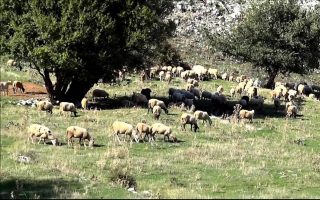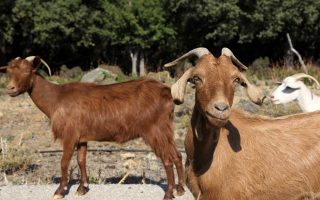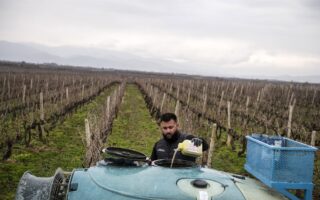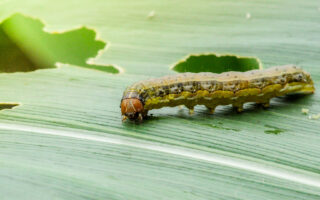Country in grip of cattle plague

The detection of sheep and goat plague in Greece has highlighted the inadequacies and shortcomings in the system for monitoring live animal imports, as well as the mechanism of restrictions on sheep and goat farms.
The affected farms are those that produce milk for cheese production, particularly feta, because the increased demand for sheep and goat meat during the summer, caused by tourism, is met by imports. However, the disease cannot be transmitted to people by the animals themselves or by the intake of milk and cheese. In any event, heat treatment ensures the products’ safety.
Greece has confirmed 22 cases of rinderpest in cattle, with 20 detected in Thessaly, Central Greece, one in Corinth, Peloponnese and one in Attica.
To date, 10,768 animals have been slaughtered, and another 2,000 are expected to be culled soon.
The disease, also known by its French acronym PPR (peste des petits ruminants), was first discovered in France’s African colonies in 1942 and its virus does not infect humans.
Georgios Stratakos, general secretary at the General Secretariat of Rural Development and Food, stated that the problem is being scientifically investigated. Veterinarians are tracing the movements of infected animals and providing results.
Stratakos observed that sampling in Attica and Corinth followed specific animal movement patterns and involved the tracking of infected units. According to European guidelines, all animals in afflicted units must be culled, followed by disinfection and quarantine.
In response to the outbreak, Agriculture Minister Kostas Tsiaras has imposed a nationwide ban on the movement of goats and sheep to curb the spread of the disease and eradicate the plague.
Already last week, a delegation from the relevant European Union agency visited Greece and was in Thessaly to ensure that all essential precautions are being taken to prevent the disease from spreading, and from migrating to another member-state. The inspection team reportedly assessed that the Community guidelines were being followed.
It appears that the disease has entered Greece from Romania, which has also announced outbreaks through the importation of live animals carrying the virus. Normally under the legislation on intra-Community movements, the imported animals would have to be accompanied by health certificates if they were to be sent to Greek livestock farms.





